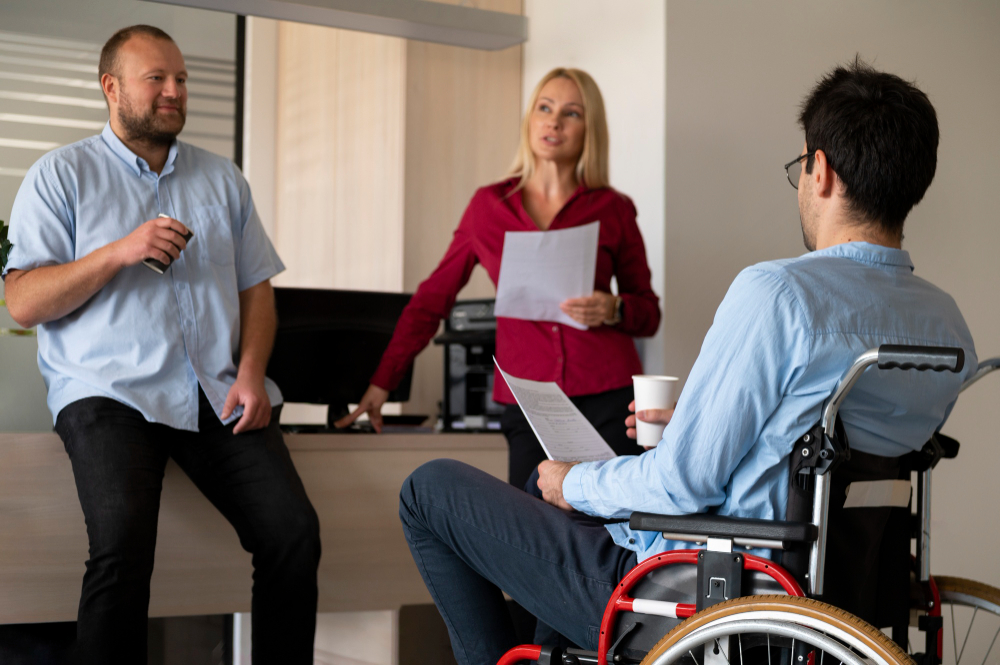California’s got one of the biggest elderly populations in the U.S.. So, yeah, a lot of families turn to nursing homes for help when loved ones can’t manage alone anymore.
In theory, those places are supposed to keep folks safe, cared for, and respected. You know, basic human stuff. But not all of them do. Some don’t even come close.
Every so often, you hear these awful stories about mistreatment or neglect. And it’s honestly gut-wrenching.
The thing is, abuse isn’t always clear. It’s not like there’s a flashing red light saying something’s wrong here.
It can be physical, emotional, sexual, financial, or just plain neglect. The signs are sneaky, such as:
- Tiny bruises
- Weird behavior changes
- Slipping hygiene
Additionally, there might also be some odd money stuff showing up in the bank account.
A lot of people shrug that off, but those “small things” can mean something way bigger.
Spot these nursing home abuse signs early, and it could literally save someone’s dignity, or even their life. If your gut’s nagging you that something’s off, don’t overthink it.
Families who notice troubling patterns should act without hesitation, and experts like Arias Sanguinetti Trial Lawyers stand ready to help them pursue justice and accountability.
What Is Nursing Home Abuse?
Abuse isn’t always one thing. It’s a whole mix. Physical, emotional, sexual, financial… and then there’s neglect. It is, which honestly might be the quietest but most common type.
Sometimes it’s not about someone doing harm but just not doing enough. Family, friends, or caregivers visiting often are usually the first to spot those subtle shifts.
Trust what you see. People who visit every week usually notice what the staff try to brush off.
What Are The Different Nursing Home Abuse Signs?
These are the most common nursing home abuse signs. Pay attention to the person if you see any one of these in them:
1. Physical Abuse Signs
Physical abuse is, sadly, the one you can see easiest. If you notice weird bruises, cuts, burns, stuff that doesn’t add up, or if your loved one seems to “fall” way too often, that’s a red flag.
Restraint marks? Huge warning sign. And honestly, if they suddenly flinch or act scared around a certain nurse or aide… that tells you something. People don’t react like that for no reason.
2. Emotional Abuse Indicators
Now this one’s trickier. Emotional abuse doesn’t leave bruises. But it leaves someone drained inside.
You might see them acting differently. They might not want to talk. Additionally, they keep avoiding activities or snapping for no reason.
Sometimes they’ll just go quiet or nervous. You might think they’re having a bad week, but if it keeps happening?
That’s not nothing. Keep an eye on the little things—tone of voice, how they respond when staff walk by. It’s those subtle changes that give it away.
3. Signs Of Neglect
Neglect is like slow damage. You don’t notice it right away until one day, bam—everything feels wrong.
Maybe they’re losing weight, looking dirty, or wearing the same clothes for days. The room smells weird.
Bed linens have not been changed. Their meds look untouched. It’s not just bad housekeeping—it’s a sign no one’s doing their job.
Keep notes, snap photos if you can (within reason), and speak up. Ignoring it never helps.
4. Financial Abuse Clues
Money problems are another sneaky one. Sometimes a caregiver or even a relative starts “handling” their finances and suddenly things don’t add up.
Missing cash, weird withdrawals, or legal papers mysteriously changed—yeah, that’s not normal.
A random signature on a will or power of attorney? Huge red flag. Check the accounts once in a while. Seriously, a five-minute look could stop months of theft.
5. Recognizing Sexual Abuse
This is a rough one, but it’s real, even in nursing homes. Signs can include torn clothing, bruises in private areas, or just sudden fear around certain people.
Sometimes the person can’t even explain what happened; they just shut down. It’s awful.
If you even suspect something like that, handle it gently—but move fast. Don’t let embarrassment delay action.
How To Respond To These And Other Nursing Home Abuse Signs?
If you see something weird, don’t wait until “next time.” Write it down. Date, time, what happened, who was there.
The boring details matter later. Then report it—start with the facility management, and if they shrug it off, go higher.
California’s got agencies that deal with elder abuse. They actually investigate this stuff.
Acting fast can stop the abuse before someone gets seriously hurt—or worse.
How To Support The Victims?
After the fact, what people need most is to feel like someone’s in their corner.
Visit often, call, text—whatever keeps them connected. Sometimes just knowing someone cares makes a huge difference.
Additionally, let them talk without cutting in. We shouldn’t make them feel like they’re being dramatic.
They’ve probably already been dismissed a hundred times. And yeah, therapy or counseling helps too.
Also, it’s always good to remember that healing from this kind of thing takes:
- Time
- Patience
- A ton of empathy
How To Recognize These Nursing Home Abuse Signs?
Funny enough, preventing abuse kind of starts before it ever happens. When you’re picking a facility, dig deep—don’t just trust the shiny website photos.
Visit. Talk to staff, peek in corners, read reviews, even the bad ones. You’ll get a sense of the vibe.
And after your loved one’s there, keep showing up in ways that make them feel safe, such as:
- Random visits
- Surprise check-ins
It makes a difference. When staff know families around and pay attention, it discourages a lot of bad behavior.
What Are The Legal Options Against These Nursing Home Abuse Signs?
When it’s gone too far, legal action might be the only way. That’s where elder care lawyers step in.
They help families figure out what’s possible. Additionally, they also clarify how to actually make something happen.
It’s not easy, but accountability rarely is. The right attorney can guide you through the mess, deal with the paperwork, and make sure the people responsible face consequences.
Consulting with lawyers who have experience in elder care can help clarify the path forward.
Common Nursing Home Abuse Signs Explained
At the end of the day, spotting and stopping nursing home abuse takes heart.
You’ve gotta pay attention. More so, you must speak up and not let fear or guilt keep you quiet. Awareness really is half the battle.
When families and caregivers stay alert, they protect the folks who can’t always protect themselves.
It’s not about being paranoid. It’s about being present. Our elders deserve that much, don’t they?
















